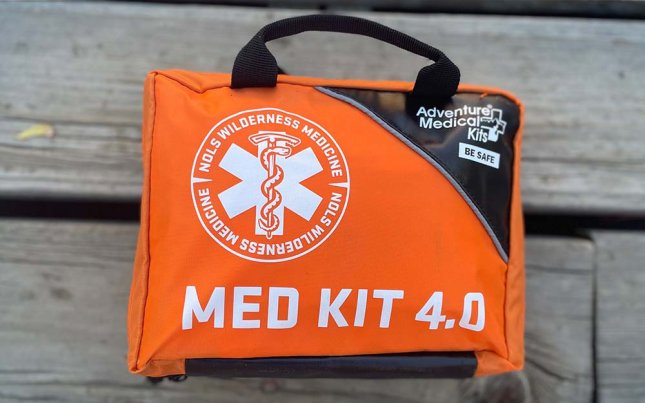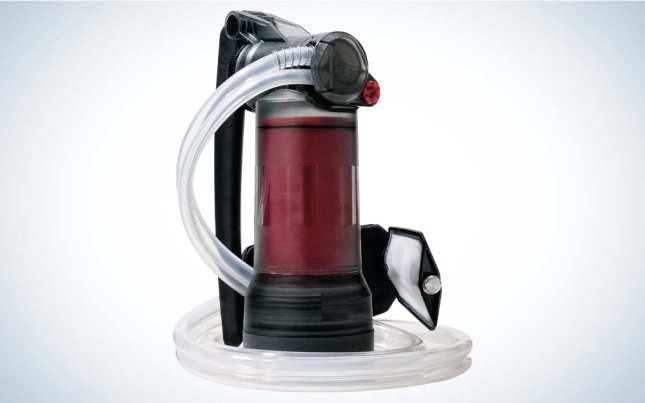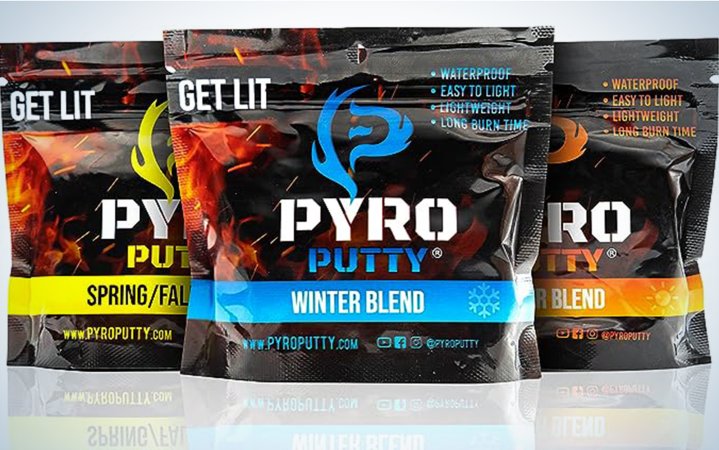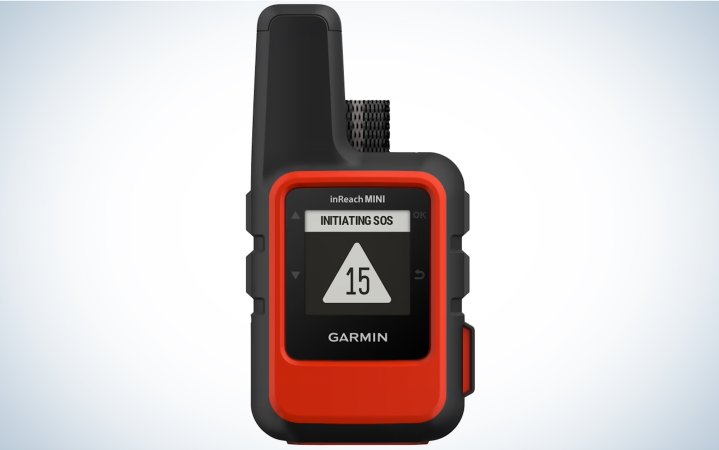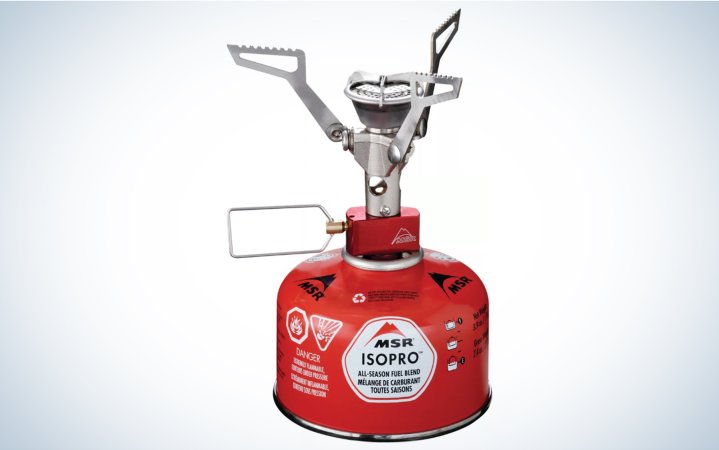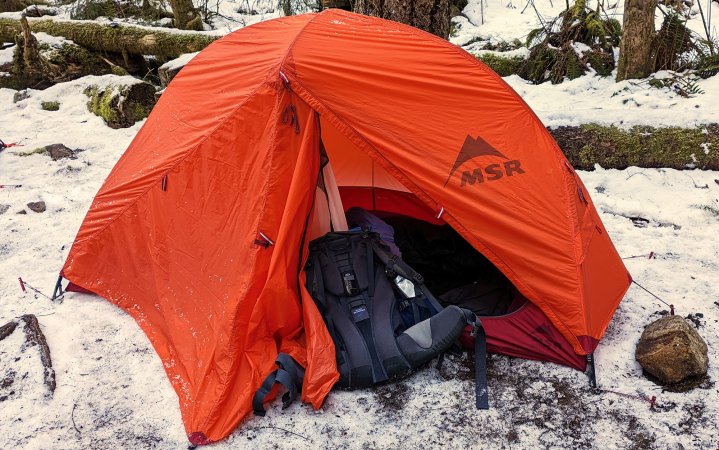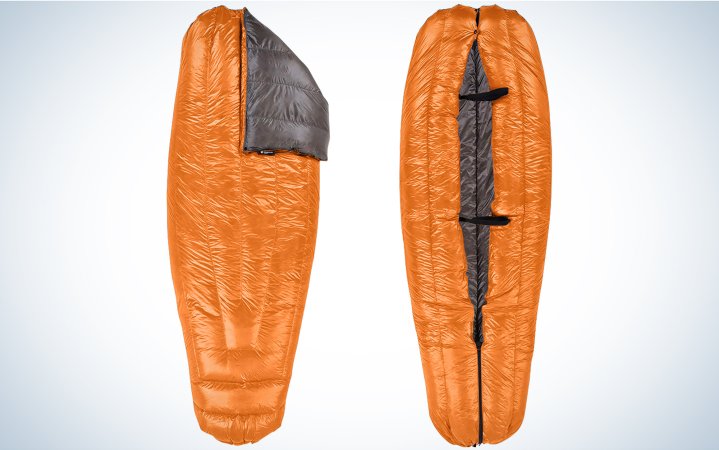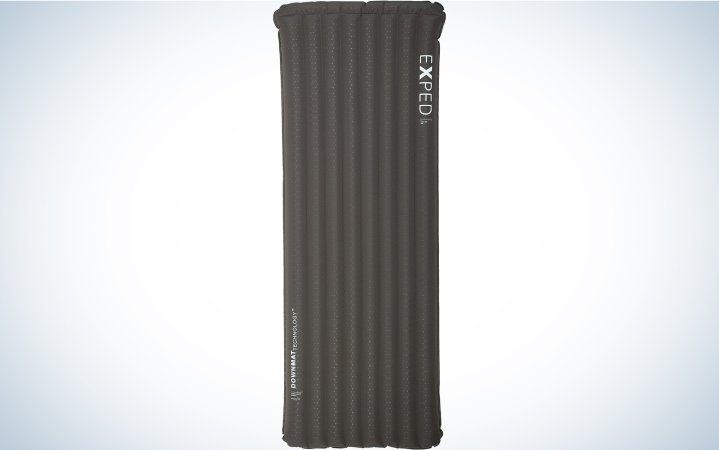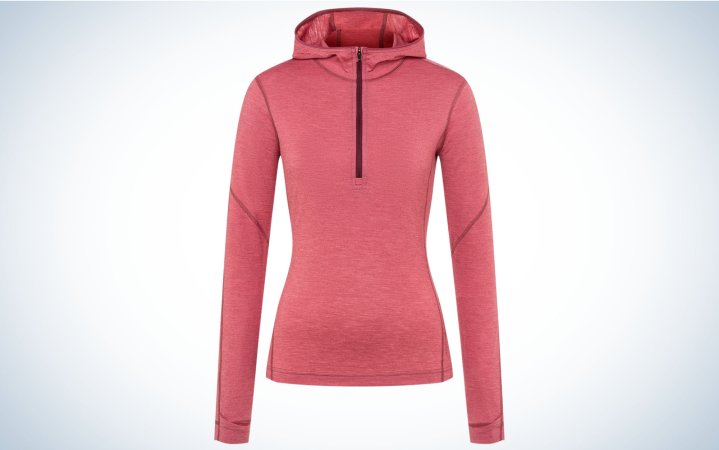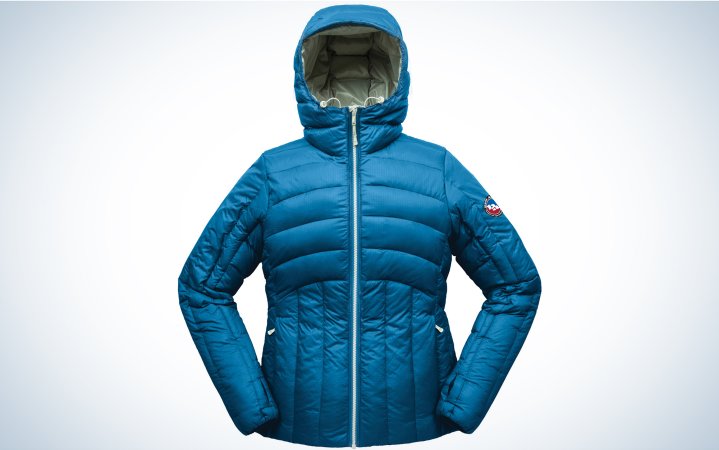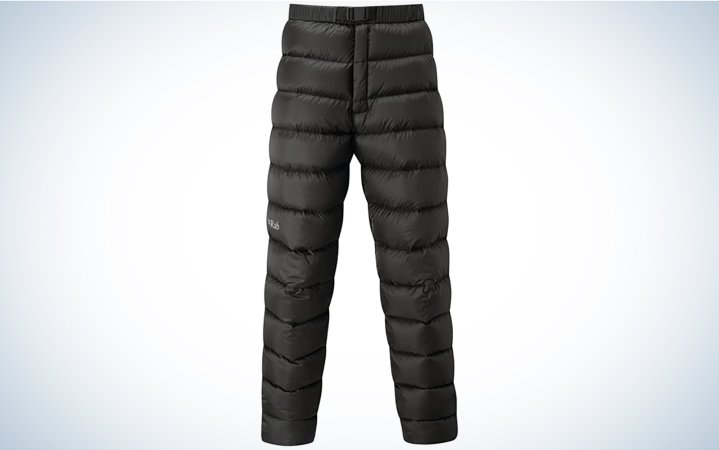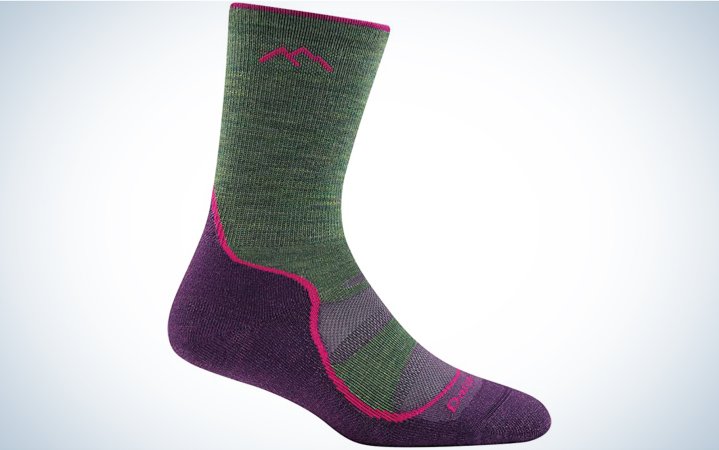We may earn revenue from the products available on this page and participate in affiliate programs. Learn More ›
Whether you’re kitting out your car to handle a winter overnight or building your first bug out bag, you’ll want to choose survival gear that can go the distance. OL editors, staff writers, and contributors have been trying out everything from fire starters to water filters to thermal underwear to see what gear has the chops to go the distance. We’ve rounded up our top picks from years of in-depth testing to bring you the best survival gear for every scenario.
Health and Safety
- Best First Aid Kit: NOLS Med Kit 4.0
- Best Fire Starter: Pyro Putty
- Best Knife: Benchmade Mini Adamas Folding Knife
- Best Headlamp: Black Diamond Storm 500R
- Best Flashlight: SureFire Stiletto Pro
Communication
- Best Satellite Messenger: Garmin inReach Mini 2
- Best Solar Charger: BioLite SolarPanel 5+
Food and Water
- Best Water Filter: MSR Guardian
- Best Stove: MSR PocketRocket 2
- Best Emergency Rations: ReadyWise Emergency Food Supply 72 Hour
Shelter and Sleep Systems
- Best Tent: MSR Access
- Best Sleeping Bag: Enlightened Equipment Revelation
- Best Sleeping Pad: Exped Dura 8R Sleeping Mat
- Best Emergency Blanket: S.O.L. Heavy Duty Emergency Blanket
Clothing
- Best Thermal Underwear for Men: Smartwool Merino 150
- Best Thermal Underwear for Women: Black Diamond Solution 150 Merino Half Zip Hoody
- Best Puffer Jacket: Big Agnes Women’s Luna Jacket/Men’s Shovelhead
- Best Puffer Pants: Rab Argon Down Pants
- Best Wool Socks: Darn Tough Light Hiker Micro Crew
How We Chose the Best Survival Gear
Outdoor Life’s writers and editors took a number of approaches to testing the best survival gear. To test the best wool socks, we outfitted five different individuals for 30 miles of testing across the Oregon Coast. To test the best flashlights, gear editor Scott Einsmann conducted a side-by-side on a moonless night using archery targets to measure brightness and candela. To test the best backpacking water filters, I pumped hundreds of liters through 14 different water filters. Former assistant editor Samantha Silverman ate a wide range of the best survival food to see which she’d actually want in her pantry during a survival scenario. If you’ve been looking for survival gear recommendations backed by actual in-the-field testing, you’ve come to the right place.
Best Survival Gear: Health and Safety
Best First Aid Kit: NOLS Med Kit 4.0
Best First Aid Kit
NOLS Med Kit 4.0
Pros
- You learn to use all this equipment in NOLS courses
- Extensive wound care materials
- Lightweight, yet there’s room to customize your kit
Cons
- No SAM Splint like you’re taught to use in their courses
- Subpar tweezers
Key Features
- Weight: 1 pound, 26 ounces
- Extensive wound care materials
- Materials in accordance with NOLS wilderness medicine curriculum
- Includes SOAP notes for communicating a patient’s condition to search and rescue
Former OL assistant editor Samantha Silverman, a former backcountry guide with a NOLS Wilderness First Responder certification, appreciated that this kit could be used to treat more severe wounds than minor abrasions. She even gave this kit to a friend (an EMT) who had to treat someone in the field with a deep wound that had to be thoroughly packed and was immediately transported. That’s all the additional assurance she (or we) need.
Read Next: The Best First Aid Kits
Best Fire Starter: Pyro Putty
Best Fire Starter
Pyro Putty
Pros
- Easy to carry in a pack or survival kit
- Easy to light
- Long burn time
- Weatherproof
Cons
- Slow to light if wet
- Not all-natural
Key Features
- Burn Time: 8 minutes
- Stays lit in high wind
- Waterproof
Gear editor Scott Einsmann lauded the the Phone Skope Pyro Putty as not only a well-thought-out fire starter, but also a multi-purpose piece of gear. If your tent springs a leak, you can rub Pyro Putty on the area to waterproof it. It’s available in different formulas that are optimized for different times of year. Pyro Putty makes a cold-weather and warm-weather putty, as well as an all-natural and ultralight version. The warm weather Pyro Putty burned for 8 minutes during testing before the flame went out. That’s a respectable burn time for just 0.1 ounce of material. It was also extremely easy to light, taking less than a second to catch fire. The putty even burned (if not as hotly) after being submerged for 7 minutes. It also stayed lit when he turned a leaf blower on it (to stimulate strong winds).
Read Next: The Best Fire Starters
Best Overall: Benchmade Mini Adamas
Best Overall
Benchmade Mini Adamas
Pros
- Great blend of edge retention and resistance to chipping or breaking
- Versatile blade shape
- Built strong, but without the heft
- Good grip
Cons
- If the coating wears off, it can corrode
Key Features
- Made in the U.S.
- 3.3-inch drop point blade
- CRUWEAR steel
- Ambidextrous AXIS Lock
- 4.3 ounces
The Benchmade Mini Adamas is a shrunken and updated version of one of Benchmade’s biggest and toughest folders, the Adamas. In the update, the Mini Adamas was blessed with CRUWEAR Steel, which is a great improvement. Benchmade also updated the full-size Adamas and sells both the full-size and the Mini. The old version had D2, which isn’t bad by any measure, but doesn’t hold a candle to CRUWEAR. The Benchmade Mini Adamas is my pick for the best pocket knife overall because it can do most things well. It excels in a hard use environment because of its good ergonomics, strong liners, and CRUWEAR blade. —Drew Conover
Read Next: The Best Pocket Knives
Best Headlamp: Black Diamond Storm 500R
Best Headlamp
Black Diamond Storm 500R
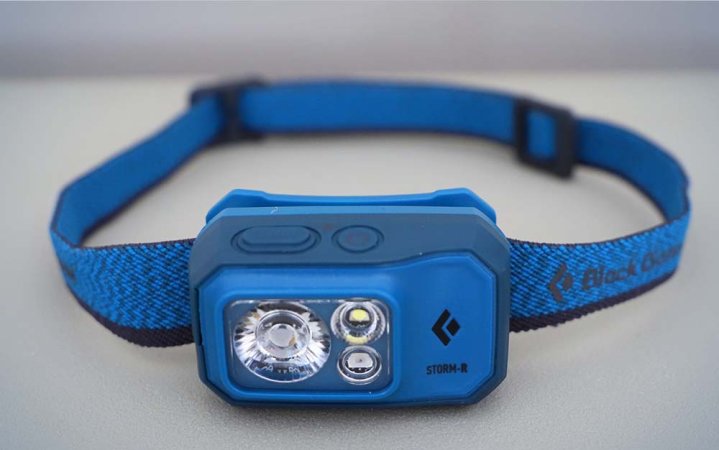
Pros
- Long max beam duration
- Rugged design
- Excellent battery life
Cons
- Pricey
- Headband isn’t the tightest
Key Features
- Lumens: 500
- Lights: White, red, green, blue, strobe LED
- Max beam distance: 120 meters
- Max run time on high: 7 hours
- IP67 Submersible
The Black Diamond Storm 500R excelled in max battery life, max beam duration, and total recharge time, which made it an obvious choice for the best overall pick during the OL test of the best headlamps for hunting. Black Diamond claims that this headlamp will run for 20 hours on reserve, but I actually found this one to run for 26 hours, which was a nice surprise. And the max beam duration of seven hours was the greatest by a long shot (the next closest only lasted 3 hours). And recharge time, from stone dead to full charge, required just shy of 2 hours.
The Storm 500R also includes a dual LED beam option and red, green, and blue night vision lights. And the intuitive, two-button controls make it easy to run through the settings. Next to the Surefire Maximus, this beam produced the brightest and most focused beam at 30 yards. —Adam Moore
Read Next: The Best Headlamps
Best Flashlight: SureFire Stiletto Pro
Best Flashlight
SureFire Stiletto Pro
Pros
- Ergonomic
- Long run time
- Slim profile
Cons
- Not much throw
Key Features
- Lumens: 1,000, 300, 25
- Weight: 4 ounces
- IPX7 (waterproof to one meter for 30 minutes)


The SureFire Stiletto Pro checks all the boxes for gear editor Scott Einsmann. It’s easy to carry in a pocket, it’s bright, it has a versatile beam, and it’s rechargeable. The beam pattern is wide and very even edge to edge, which is ideal for EDC applications, blood trailing, and general use. It has good run time and, at max brightness, you can run it continuously for 1 hour. When the Stiletto Pro is running low, a red indicator light comes on. Recharging the Stiletto Pro is easy with a power bank. There are tradeoffs for the Stiletto Pro’s nice, even beam. It lacks throw, and you’ll have issues pushing past a photonic barrier or seeing objects beyond 50 yards. But, for most things you’d use a flashlight for, this is the best overall flashlight option.
Read Next: The Best Flashlights
Best Survival Gear: Communication
Best Satellite Messenger: Garmin inReach Mini 2
Best Satellite Messenger
Garmin inReach Mini 2
Pros
- Has satellite messenger ability
- Pair with your phone using the Garmin Messenger app
Cons
- Breadcrumb map only
- Expensive
Key Features
- Weight: 3.5 ounces
- Satellite Network: Iridium
- Battery: Up to 14 days
Tyler Freel took a look at the Garmin inReach Mini 2 and came back impressed. He noted that the inReach MINI 2 works best when paired with your smartphone via the Garmin Explore app. This is especially true for more complete GPS functions and mapping, including the ability to download a variety of map layers including Topo North America, USGS Quad Sheets, and even aerial imagery for some areas. One change with the MINI 2 is the addition of a “passive” trackback feature, which allows you to backtrack along a track you’ve already made, even if you don’t currently have active tracking enabled.
If you need to retrace your steps, you can recall them for up to 24 hours. Even better: To make location acquisition and satellite connection faster in remote places, the inReach MINI 2 connects to three different satellite networks in addition to GPS and Iridium communication satellites. You might not see a perceptible difference in connection times in some areas, but in steep mountain canyons, or other areas with limited direct visibility of the sky it can make a big difference. What the MINI 2 lacks is the option to have a basic topographic map on the unit, even with the small screen. You won’t have access to the full power and function of the MINI 2 without using it with a smartphone.
Read Next: The Best Personal Locator Beacons and Satellite Messengers
Best Solar Charger: BioLite SolarPanel 5+
Best Solar Charger
BioLite SolarPanel 5+

Pros
- 8Wh battery is integrated into the panel
- Affordable
- Small and lightweight
- Integrated sundial and adjustable kickstand
Cons
- Slow charging time
- Performs poorly in even slightly cloudy weather
Key Features
- Max power output: 5W
- Weight: 13.8 ounces
- Ports: USB-A
- Also available in SolarPanel 10+
- Warranty: One year
Of the units I looked at with an integrated battery pack and solar panel, I was most impressed by the BioLite Solar Panel 5+. While the max output of the BioLite Solar Panel 5+ is only 5 watts, it’s enough to get your smartphone going again. I also liked that it featured an adjustable kickstand and an integrated sundial, which I used to optimize the positioning of the panel during testing. Though it took the BioLite Solar 5+ 22 minutes to charge my phone 5 percent, it was fairly cloudy when I originally tested this model. The BioLite’s onboard 3,200 mAh battery can also be charged via a micro USB port, and was found after several months of testing to still hold a full charge.
Read Next: Best Solar Chargers
Best Survival Gear: Food and Water
Best Water Filter: MSR Guardian
Best Water Filter
MSR Guardian
Pros
- Effective against viruses in addition to protozoa and bacteria
- One of the fastest flow rates I tested
- Backflushes the filter with each pump
- Can withstand freezing temperatures (assuming you let it thaw out afterward)
Cons
- Heavy
- Expensive
Key Features
- Effective against protozoa, bacteria, and viruses
- Weight: 17.3 ounces (initial); 21.5 ounces (after testing)
- Time to filter a liter of water: 0:45 (initial); 0:45 (after testing)
The MSR Guardian pulls off the hat trick, filtering out viruses at a fast flow rate with the same, or even less, elbow grease required as from other filters. It’s also very compact—something you’ll have no trouble fitting into either your go bag. The most unique feature of the MSR Guardian is that instead of directing all of the water out through the bottom of the filter with each pump, a portion of the water is directed back through the filter—essentially backflushing the filter with each pump.
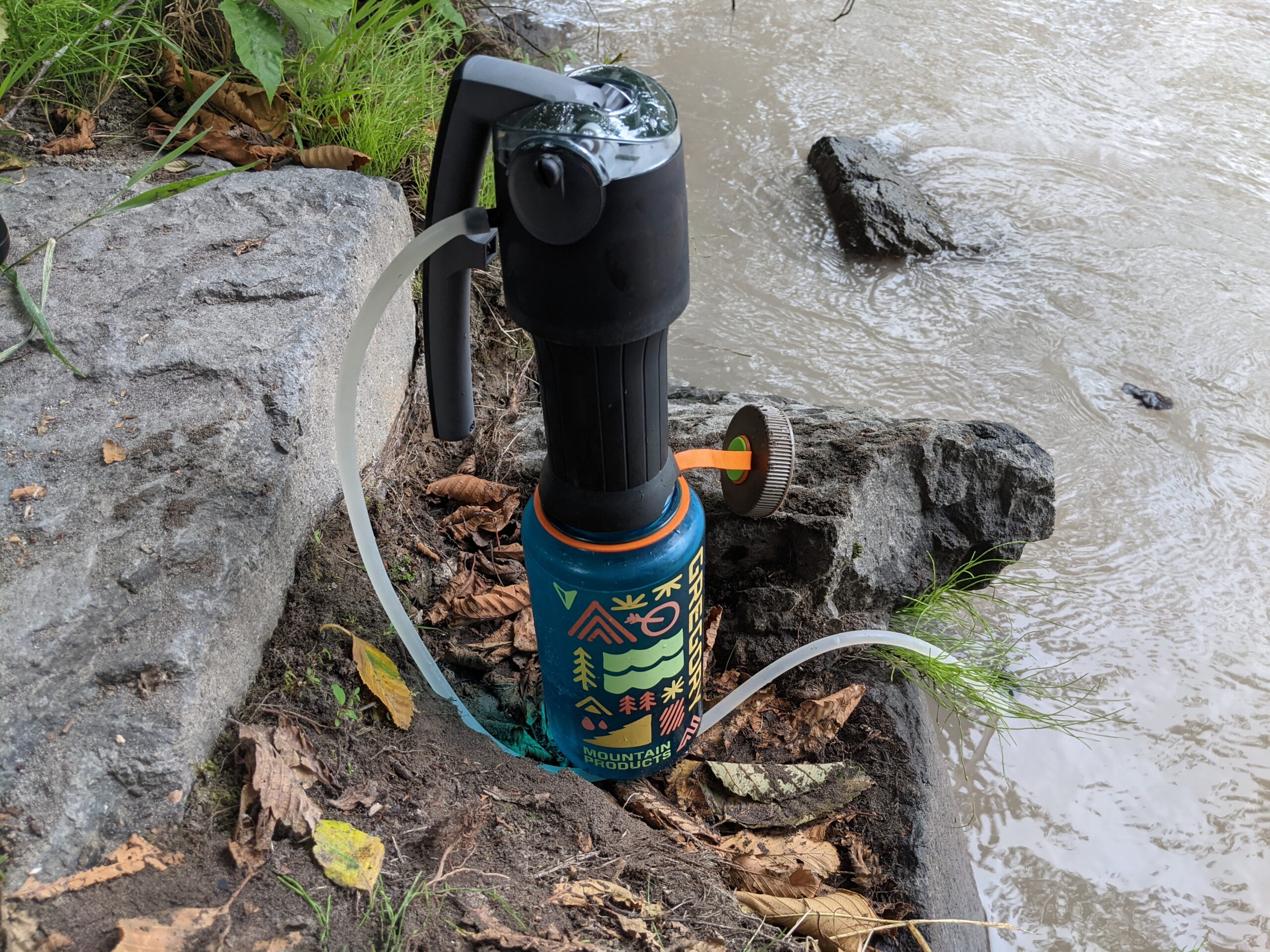
During testing, this meant that the filter had the same performance during the last round of testing as it did during the first: 45 seconds for a liter of water. I was also impressed with how easy the MSR Guardian was to use straight out of the box. After it had been unmoored from its packaging, I simply unscrewed the cap on the bottom of the filter, plopped the intake filter into my pool of water and started filtering water. But if you’re looking for a no-brainer filter that can remove the full spectrum of bacteria, protozoa, and viruses from your water with basically no maintenance required, then this is the filter for you.
Read Next: The Best Backpacking Water Filter
Best Stove: MSR PocketRocket 2
Best Stove
MSR PocketRocket 2
Pros
- Affordable
- Reliable
- Small packed size
Cons
- Requires a separate pot
Key Features
- Weight: 2.6 ounces (73 grams)
- Size: 1.3 inches x 3.1 inches
- Three arms that fold down for compact storage
- Windclip prevents the stove from blowing out in strong winds
- Toggle allows flame adjustment for backcountry gourmets
- Includes a hard-shell case (fuel must be purchased separately)
- Also comes in a deluxe model that includes a built-in Piezo lighter and pressure regulator
- Three-year warranty

The MSR PocketRocket 2 is one of the simplest stoves on the market, making it a great choice for survival scenarios. Unfold the arms, screw the bottom of the stove into your isobutane canister, turn the flame adjuster counterclockwise until you hear a light hiss, and go ahead and light your stove. Add your cooking pot and turn up the flames to the highest setting to boil your water. Remember that if you purchase your stove online that you’ll need to head to a store to purchase your isobutane canister. This is because there are strict regulations on how pressurized gas is sent through the mail. While MSR sells their own brand of isobutane fuel, any isobutane canister will work fine.
Read Next: MSR PocketRocket 2: The First and Last Stove You Need to Buy
Best Emergency Rations: ReadyWise Emergency Food Supply 72 Hour
Best Emergency Rations
ReadyWise Emergency Food Supply 72 Hour
Pros
- Tastes great
- Well-rounded meal variety
- 25 year shelf life
Cons
- Multiple servings per sealed package (difficult to measure a single serving)
Key Features
- Shelf life: 25 years
- Packaging: Four servings per food package, 12 per powdered milk package
- Preparation: Add food into boiling water (approximately 17-minute total cooking time)
This best all-around survival food kit contains eight servings of brown sugar and maple multigrain oatmeal, 12 servings of whey milk alternative, and four servings each of cheesy macaroni, teriyaki rice, and hearty tortilla soup. The instructions on the back of each pouch are for preparing the whole thing at once, so it’s great for groups, families, or one large individual meal.
What sets ReadyWise apart from its survival food competitors is that it truly tastes like real food. Each serving of oatmeal, macaroni, and rice contains an average of 260 calories, 6g of protein, and 20 percent of your daily carbohydrates. If you’re ever in the position to need survival food, it is likely very comforting to eat a hot meal that you could’ve cooked in a normal situation. I, for one, will be ordering this again to take camping because it’s easy to cook and share. —Samantha Silverman
Read Next: The Best Survival Foods
Best Survival Gear: Shelter and Sleep Systems
Best Tent: MSR Access
Best Tent
MSR Access
Pros
- Virtually no condensation
- Comparatively lightweight
- Great stuff sack
- Easy setup
Cons
- Expensive
- Somewhat delicate materials require care
Key Features
- Materials: 20D ripstop nylon and Easton Syclone composite poles
- Floor Dimensions: 29 square feet (for a two-person tent)
- Includes eight stakes and four guylines
- Doors: One to two
- Vestibules: One to two
- Weight: 3 pounds, 10 ounces (for a two-person)
The MSR Access was my pick for the best 4-season tent due to its easy setup, taut structure, and ability to handle condensation. If you are looking for a best-in-class emergency shelter, this is a great (if expensive) choice that will see you through much tougher conditions than most people will be able to eke out with a tarp. As a bonus, it packs down quite small, so you can easily stash it inside of a car or backpack if needed.
Read Next: The Best 4-Season Tents
Best Sleeping Bag: Enlightened Equipment Revelation
Best Sleeping Bag
Enlightened Equipment Revelation
Pros
- Reasonably priced options
- Wide degree of customization possible
- Choice between down and synthetic insulation
Cons
- Somewhat limited warranty (three years)
Key Features
- Temperature Ratings Options: 0 degrees to 50 degrees
- Down Fill Power Options: 850 fill power or 900 fill power
- Synthetic fill also available
- Length Options: 66 inches to 90 inches
- Width Options: 50 inches to 64 inches
- Fabric Options: 7D, 10D, or 20D nylon
- Footbox Style: Convertible (closed option available in their Engima style)
The more control you have over all the specifications that go into your sleeping bag—size, insulation material, temperature rating—the better your sleep experience will be. And that’s where the Enlightened Equipment Revelation shines. It has more customization options available than anything else we looked at, at still-affordable prices. OL’s gear editor, Scott Einsmann, snagged himself an Enlightened Equipment quilt just in time for an elk hunt in British Columbia. He says he’s slept in his 850-fill power, 10-degree quilt (paired with the Exped 5R Dura) in everything from 30 degree temps to 70 degree temps and been perfectly comfortable with no more additional layers than a hat when it got especially cold. That’s because backpacking quilts, unlike traditional sleeping bags, excel at staying comfortable across a range of conditions.
Read Next: The Best Backpacking Quilts
Best Sleeping Pad: Exped Dura 8R Sleeping Mat
Best Sleeping Pad
Exped Dura 8R Sleeping Mat
Pros
- Very warm
- Durable
Cons
- Expensive
Key Features
- Contains down insulation
- 75D polyester shell
- Available in long and wide sizes
- 7.8 R rating
To protect yourself from the cold of the ground in a survival scenario, you’ll need a best-in-class sleeping mat. First look for great durability, which typically requires a sleeping mat with a thickness rating of at least 30 denier (D). Next, look for a high R rating so that you are completely insulated against freezing temperatures. (If you’re wondering what R rating is, check out our explainer.) That’s it. That’s all you need. The best we’ve found yet is the Exped Dura 8R Sleeping Mat. While it’s not the lightest or the warmest sleeping pad on the market, it is the lightest and the warmest while still boasting serious durability credentials. This is the pick you want for your survival kit.
Read Next: The Best Backpacking Sleeping Pads
Best Emergency Blanket: S.O.L. Heavy Duty Emergency Blanket
Best Emergency Blanket
S.O.L. Heavy Duty Emergency Blanket
Pros
- Durable
- Relatively inexpensive
- Reflective, can be used for signaling
Cons
- Lacks grommets
Key Features
- Weight: 7.9 ounces
- Dimensions: 60 x 96 inches
- Heat Reflectivity: 90 percent
This best survival blanket weighs in at only 7.9 ounces, and it provides 40 square feet of coverage with its 5 foot by 8 foot size. It can easily pack down into a cargo pants pocket and it is relatively strong and resistant to ripping. We believe this one is tough enough to be reused over and over and it will last for many backcountry trips. If you can buy only one emergency blanket, this is the one to get. It has the perfect blend of packability, durability, affordability, and reflective properties. —Kevin Estella
Read Next: The Best Emergency Blankets
Best Survival Gear: Clothing
Best Thermal Underwear for Men: Smartwool Merino 150
Best Thermal Underwear for Men
Smartwool Merino 150
Pros
- Slim, lightweight
- Durable
- Super warm
- Not restricting
- Multiple colors and patterns
Cons
- Too warm for some activities
Key Features
- Slim fit
- Flatlock seam construction
- 87 percent merino wool, 13 percent nylon core
- Weight: 6 ounces
I have been a fan of Smartwool for years. Their products are durable and downright comfortable, and the 150 line is no exception. Once I slipped the tops and bottoms on, I almost forgot I was wearing them. And I don’t mind wearing these all day. These Merino layers do a fantastic job of regulating your body temperature and wicking moisture. I’ve used them skiing, camping, and hiking in cold temps, and I’m always impressed by how well their profile contours your body and keeps you warm. Pair these with some of the best hiking pants, and you’ll be prepared to face even the most frigid temps outdoors. —Theo Harris
Read Next: The Best Thermal Underwear for Men
Best Thermal Underwear for Women: Black Diamond Solution 150 Merino Half Zip Hoody
Best Thermal Underwear for Women
Black Diamond Solution 150 Merino Half Zip Hoody
Pros
- Kept us comfortable at a wide range of temperatures
- Thumbholes and hood helped it double as a sun shirt
Cons
- Expensive
Key Features
- Fabric Content: 78 percent merino, 22 percent polyester
- Weight: 6.6 ounces
- Available Sizes: XS through XL
- Pair with Black Diamond Solution 150 Merino Full-Length Bottom
I was impressed at how well this layer performed across the full spectrum of summer conditions, from alpine snow to humid and hot. The thumbholes and hood also gave excellent coverage, helping to protect arms and head from sun exposure. Even after multiple days of use, it still felt soft against the skin and was noted to be comparatively more form-fitting than similar layers like the Ibex Woolies Tech or the Outdoor Research Alpine Onset Merino. One Alaska-based tester also noted the knit of this material is just tight enough to keep mosquitoes at bay, something she appreciated when she had twenty on her at a time while hiking in the Denali area in the early summer.
Read Next: The Best Thermal Underwear for Women
Best Puffer Jacket: Big Agnes Women’s Luna Jacket/Men’s Shovelhead
Best Puffer Jacket
Big Agnes Women’s Luna/Men’s Shovelhead
Pros
- Extremely warm
- Thumbholes at the end of the sleeves
- Generous hood and collar
Cons
- Heavier than other puffer jackets in my test
Key Features
- Sizes: Men’s and women’s XS-XXL
- Weight: 16 ounces (men’s); 15 ounces (women’s)
- Fill: 700fp RDS-certified down
- Shell and Lining: Recycled 20D nylon shell; recycled 20D polyester lining
- Hooded only
Where some puffer jackets cut back on down to save weight or to create a more flattering silhouette, the Big Agnes Shovelhead and Luna go in the opposite direction: It packs it in. In fact, this puffer is packed with so much down that the first few times I wore it wisps would poke out of the shell—something that usually only happens with sleeping bags (don’t worry, this stopped happening pretty quickly). With the Luna (the women’s version of this coat), I was never cold during testing, much of which took place during an unusually wet and cold spring in the Pacific Northwest.
But there are a few other reasons I keep grabbing for this puffer jacket. The first is a generous hood that would be easy to layer a hat or helmet underneath and a high collar that I could pull up to my nose. It’s worth noting that this extra protection did not obscure my vision at all. It also had thumb holes at the cuffs—something I appreciated while making coffee at dawn on a particularly cold spring day.
Read Next: The Best Puffer Jackets
Best Puffer Pants: Rab Argon Down Pants
Best Puffer Pants
Rab Argon Down Pants
Pros
- Seriously warm
- Comparatively affordable
Cons
- Difficult to layer underneath shell layers
- Need to remove shoes to take off
Key Features
- Available Sizes: Men’s XS-XXL
- Weight: 13.2 ounces
- Fill Power: 800fp
- Fill Weight: 13.2 ounces
- Shell Material: Pertex
At 800fp, it didn’t have the highest fill power of the puffers I looked at, but what it lacked in quality, it made up for in sheer quantity. With 5.6 ounces of down packed into its 13.2 ounces, the Rab Argon Down Pants had a bit of the traditional “sausage” look that the puffers of yore were known for. And I was glad of it. With nothing more than a base layer underneath these puffer pants, my legs were honestly warmer than my double-base-layer, down-layer, shell-layer-clad torso.

While the Rab Argon aren’t exactly UL, they are extremely lightweight for their performance. The downside of that is that these lacked some of the functionality of other puffers, like the Stone Glacier Grumman. The only on-off-mechanism is a zip, snap-button, and belt at the waist, making it difficult to both moderate your temperature or remove the pants without first taking off your shoes. Snag a pair of these if you plan to be primarily stationary or if you expect unusually cold temperatures.
Read Next: The Best Puffer Pants
Best Wool Socks: Darn Tough Light Hiker Micro Crew
Best Wool Socks
Darn Tough Light Hiker Micro Crew
Pros
- Comfortable
- High performing
- Great warranty
- Fits a wide range of foot sizes
Cons
- None that we’ve found yet
Key Features
- Available Sizes: Men’s 5.5-17, women’s 4.5-11.5
- Fiber Content: 43 percent merino wool, 54 percent nylon, 3 percent spandex
- Lifetime warranty
- Made in the USA with some imported materials
The Darn Tough Light Hiker is exactly what a wool sock should be. The tightness of the weave is comfortable in beach grit and forest mud alike. It hugs your foot just enough to stay perfectly in place, but not so much to restrict movement or blood flow. It’s got plenty of ventilation out the top and a nice cushioned underfoot. And when they eventually give out, Darn Tough will replace them. That takes the price tag of these socks from being on the steep side to a total steal. And plenty of people may never need to replace them at all: A single pair can easily go for 800 miles or more. The only time they stay in my closet is when temperatures plunge below freezing—then I upgrade to Darn Tough’s heavyweight hunting sock.
Read Next: Best Wool Socks
FAQs
The most important piece of survival gear will often depend on the circumstances of your environment. In a hot, arid, dry climate, your most important piece of survival gear may be water. In a cold rain, it may be shelter. It heavy snow, it may be insulative clothing and fire-starting materials.
When choosing what items to put in your survival backpack, think about your expected circumstances. Are you packing a backpack to live in your car for the winter months? Are you driving into remote destinations at the height of summer? Will your backpack live in your entry way, in case you need to beat a hasty exit? Consider what your needs may be, including duration and any extreme temperature conditions, before making a final determination. There is no one size fits all kit.
A typical first aid kit is designed to handle the normal scrapes and cuts of everyday life. An emergency medical kit, conversely, is designed to handle much more substantial injuries, and typically needs additional training to utilize properly.
Final Thoughts on the Best Survival Gear
Choosing survival gear can be tricky, because it’s hard to know if what’s in your kit can stand up to the rigors of any given scenario until you’re in the thick of it. Our picks for the best survival gear are based on rigorous testing and we’re confident that they can handle a variety of scenarios and conditions that exist in the United States.
Health and Safety
- Best First Aid Kit: NOLS Med Kit 4.0
- Best Fire Starter: Pyro Putty
- Best Knife: Benchmade Mini Adamas Folding Knife
- Best Headlamp: Black Diamond Storm 500R
- Best Flashlight: SureFire Stiletto Pro
Communication
- Best Satellite Messenger: Garmin inReach Mini 2
- Best Solar Charger: BioLite SolarPanel 5+
Food and Water
- Best Water Filter: MSR Guardian
- Best Stove: MSR PocketRocket 2
- Best Emergency Rations: ReadyWise Emergency Food Supply 72 Hour
Shelter and Sleep Systems
- Best Tent: MSR Access
- Best Sleeping Bag: Enlightened Equipment Revelation
- Best Sleeping Pad: Exped Dura 8R Sleeping Mat
- Best Emergency Blanket: S.O.L. Heavy Duty Emergency Blanket
Clothing
- Best Thermal Underwear for Men: Smartwool Merino 150
- Best Thermal Underwear for Women: Black Diamond Solution 150 Merino Half Zip Hoody
- Best Puffer Jacket: Big Agnes Women’s Luna Jacket/Men’s Shovelhead
- Best Puffer Pants: Rab Argon Down Pants
- Best Wool Socks: Darn Tough Light Hiker Micro Crew

